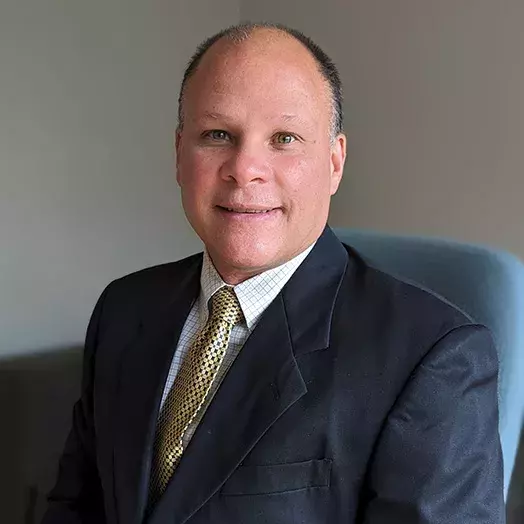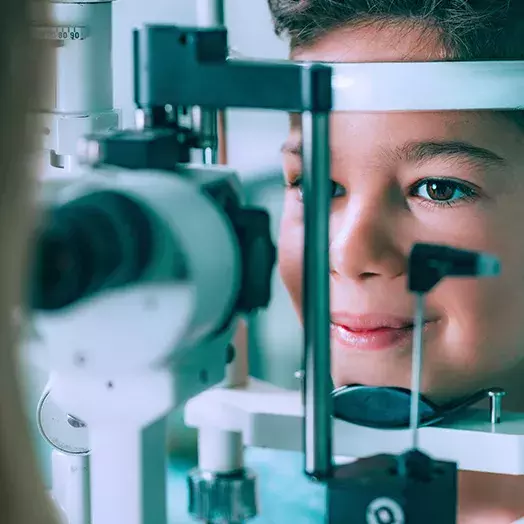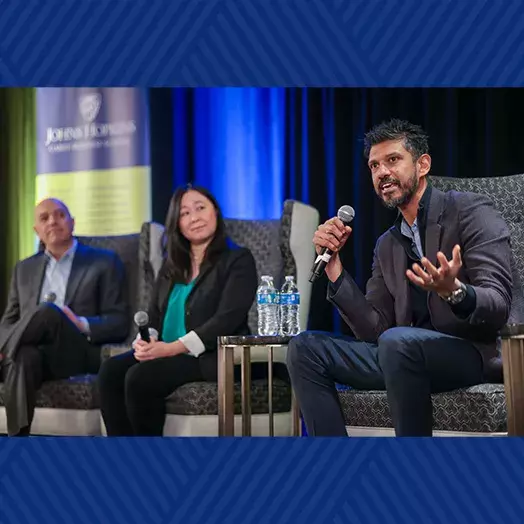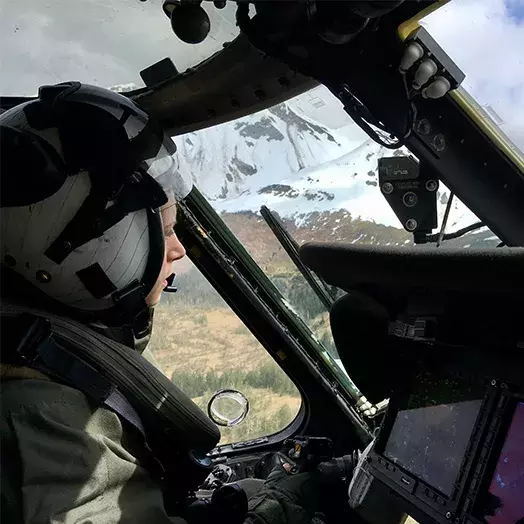Eric Locklear (MBA ’05) takes a people-first approach in his personal life and his professional life, where he influences the implementation of climate change reform at NOAA by providing guidance to senior administration officials.

Spare change and climate change: Carey alum finds inspiration and career with societal impact
What to Read Next

research
BEECH conference brings together legends and trailblazers in eye healthEric Locklear (MBA ’05) once spent a week living on the streets to better understand what it’s like to be unhoused. He’s also a senior advisor at the National Oceanic and Atmospheric Association, or NOAA. In both cases, he applies a quote from a nonprofit organizer who inspires him, named Will Cravens: “Be relational, not transactional.”
For someone who set out to be a financial planner—a career built around transactions—it may seem like a departure. But Locklear credits his experience on the streets as much as his affinity for statistics for creating his outlook on life: that it’s all about people.
People first
“One lesson I learned is that the homeless want to be interacted with as people—human beings— not just something to be handed a dollar bill,” said Locklear.
This goes hand in hand with the Johns Hopkins Carey Business School core value of unwavering humanity. In that vein, Locklear’s advice for someone just starting out in the business world is to work on being able to relate to people.
“Keep working on your interpersonal skills,” he said. “At Carey, we worked on that with our group projects and ultimately the capstone. But in the work environment where many of us are virtual and remote workers, being able to foster and maintain human connections is critical.”
Next steps, new directions
After a few positions early in his career, a friend told Locklear about his work at the United States Department of Agriculture and encouraged him to make the leap to federal service. Locklear immediately put his international business education and the experience gained from Carey to use as a representative of the U.S. government on a United Nations committee negotiating costs and revenue for worldwide users of a satellite observation system.
Today, Locklear influences the implementation of climate change reform at NOAA by providing guidance to senior administration officials. It’s a weighty role in an increasingly critical field; NOAA received funding totaling about $6 billion from both the Bipartisan Infrastructure Law and the Inflation Reduction Act – both key programs for the Biden/Harris administration.
Statistics and philosophy
In his position at NOAA, Locklear relies heavily on statistical models to address climate risks.
“Being able to understand the likelihood that an event will occur leads to insights,” he explained, crediting Carey’s statistics courses for preparing him for this important work.
Locklear also considers probability in his personal life. He embraces the idea of the stoic philosopher Seneca, who famously said, "We suffer more often in imagination than in reality." To Locklear, this explains why “most of the things I used to worry about never came true.” Realizing the chasm between what is statistically likely to happen and what people worry will happen helps Locklear see things more clearly and focus on what is most important to him – people.


